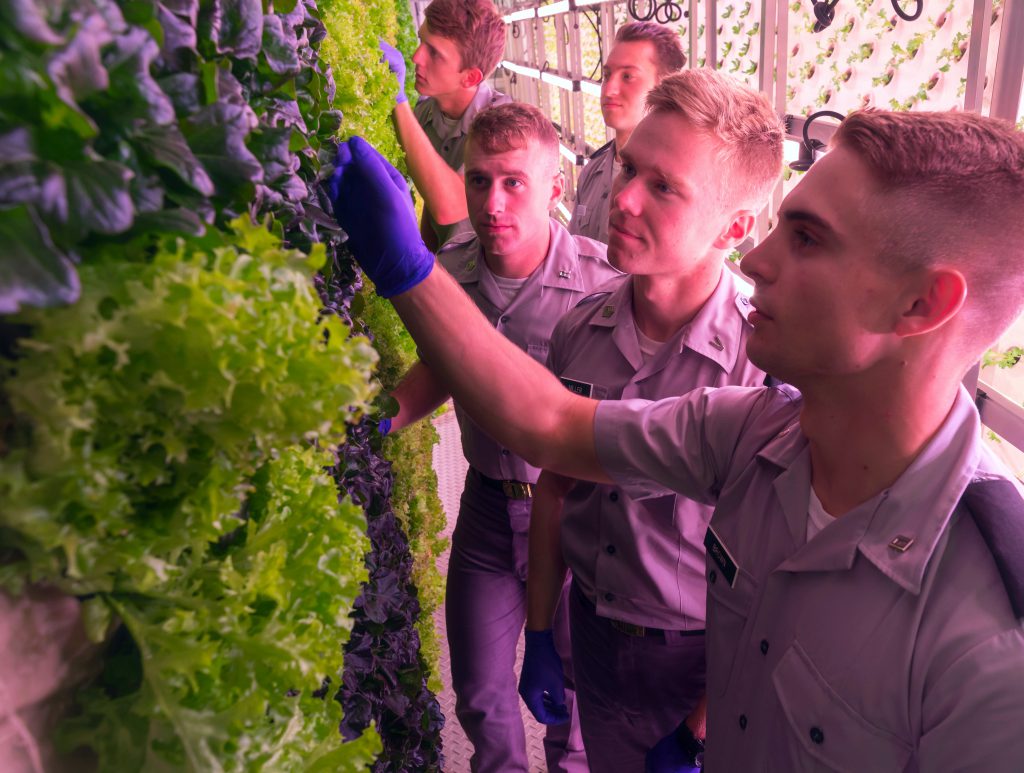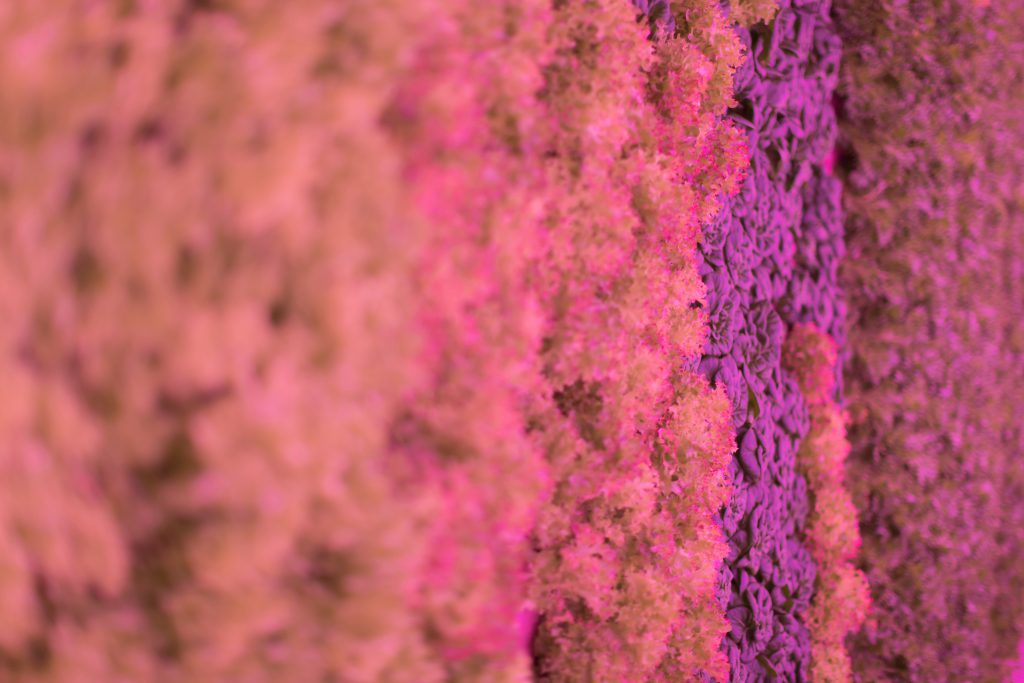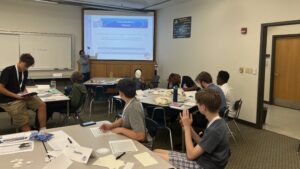
By Citadel Regimental Public Affairs Officer, Dalia Martinez, a senior biology major
Citadel cadets are learning how to grow crops in a controlled indoor “farm” setting, producing healthy, organic produce that can withstand unpredictable weather conditions or crop disease in the future. The hands-on education comes from The Citadel Sustainability Project, which operates from three shipping containers on campus. Two containers function as hydroponic cultivation systems for lettuce crops. Cadets will design and build the equipment needed to outfit the third, empty, container as part of the project’s corresponding class. (Pictured above: Cadet Cameron Brown, front right, helping lead inspection of Citadel lettuce).
The Citadel STEM Center of Excellence initiated the program in 2016. Cadets Alex Richardson who studies engineering, and Cameron Brown, a business major, manage it with the help of other students motivated by a passion for maintaining a green earth.
“Cadets are excited about The Citadel Sustainability Project because it incorporates biology, chemistry, computer science, business, engineering and community outreach. It gives us the opportunity to collaborate with students outside of our own programs on a project focused on global population needs,” Richardson said. “And seeing people on campus eat and enjoy our crops is gratifying.”
A local, sustainable food source
The high-density crop production harvests 550 heads of lettuce per week, or one day’s worth of food at a time for the campus restaurant’s salad bar. Additionally, cadets get to eat the fresh lettuce from the container farm in the student mess hall.

Those involved in the project are currently growing sweet profile lettuces such as green sweet crisp lettuce, Tropicana leaf lettuce, red butter lettuce and skyphos lettuce. In the future, they plan to grow arugula lettuce, thyme and basil, hoping to appeal to local restaurants.
The nutrients used to grow the crops are recycled within the system’s 100-gallon reservoir. They are managed through a simple smartphone application. The app tracks the metallic minerals in the water and sends nutrients to the plants every 10 minutes. It also displays the water’s temperature and the container’s carbon dioxide and pH levels.
The transformation from seed to harvest inside the container farm occurs in five weeks, compared to ten in outdoor environments. The amount of lettuce grown monthly in the two containers is about half of what could be produced in an acre of dirt.
“Our self-propagating irrigation system uses up to 98% less water than conventional industrial farming does,” said Brown, who is writing the project’s business plan. “We want to expand, grow more, and sustain this earth-friendly initiative, making our healthy produce available to more members of our community. We’re going to need more containers to do that.”
A vision for the future
Each container is valued at $80,000 after it is outfitted. The cadets intend to make the project itself sustainable by using profits from the crops to put toward the purchase of more containers.
In addition to providing a sustainable food source, the goal of the project is to help young entrepreneurs and members of the other disciplines gain hands-on experience.
“In a sense, The Citadel Sustainability Project is an experimental playground for undergraduate students, allowing us to manage a business model on our own,” Brown said.
The container farm is located in a back corner of campus near the marsh, with plenty of room for expansion. The college’s first container came from Tiger Corner Farms, a company based in Summerville, South Carolina. It was the farm’s first hydroponic container system and was a donation through The Citadel Foundation.

 The Citadel’s STEAM Camp takes students on a space adventure with hands-on learning
The Citadel’s STEAM Camp takes students on a space adventure with hands-on learning Newest program from The Citadel STEM Center aims to support math education leaders in rural areas
Newest program from The Citadel STEM Center aims to support math education leaders in rural areas Space and cyber: The Citadel STEM Center to offer local students two unique summer learning opportunities
Space and cyber: The Citadel STEM Center to offer local students two unique summer learning opportunities


